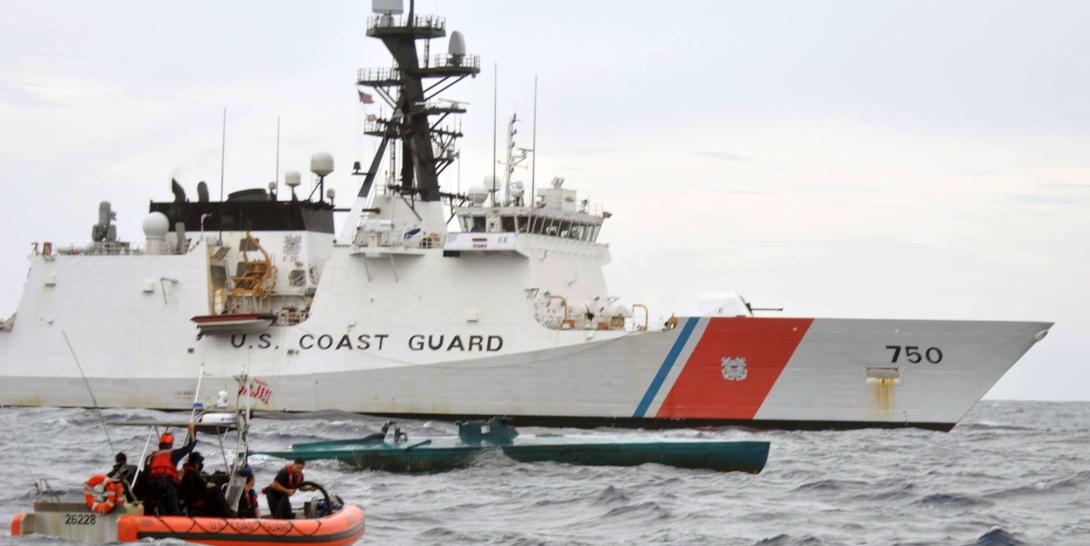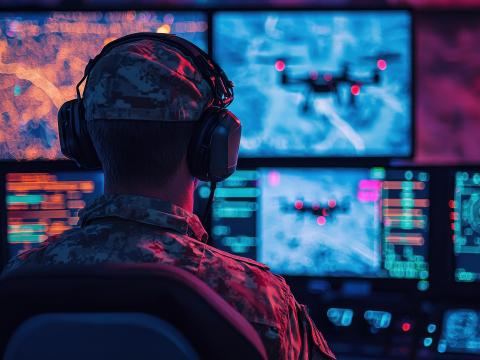Security, AI Top List of Naval Network Integration
Security and artificial intelligence are two of the top technological capabilities needed to fully integrate the networking for U.S. naval forces, including the Navy, Coast Guard and Marine Corps, according to experts serving on a panel during the West 2021 virtual conference.
The panel included Rear Adm. David Dermanelian, USCG, assistant commandant, command, control, communications, computers and information technology; Jennifer Edgin, assistant deputy commandant for information for the Marine Corps; and Vice Adm. Jeffrey Trussler, USN, deputy chief of naval operations for information warfare and director of naval intelligence.
Asked what changes must occur to deliver the networking capability needed for a major conflict with a peer or near-peer adversary, the experts agreed that security is a top priority along with artificial intelligence (AI).
Security, they stressed, needs to be a priority from the beginning as a system is being designed rather than being an add-on once the system has been built. “It used to be that security was baked in at the end. Now it is being designed up front so that rapid assessment of security posture [can occur], both for things that we’re deploying and also for monitoring our network overall,” Edgin offered.
That kind of security is enabled by cloud computing and development and security operations, commonly known as DevSecOps, Edgin indicated, explaining that she would like to see a “DevSecOps pipeline” and “the ability to take a Marine with a really great idea and marry them up with the capabilities to deploy an application.”
“That’s how we can use our infrastructure to really optimize to the mission. And again, security and DevSecOps, of course, go hand in hand,” she said.
Jennifer Edgin, assistant deputy commandant for information, USMC, on agencies cooperating: It's 2021, and friends don't let friends do it alone any more.#WEST2021
— George Seffers (pronounced See furs) (@gseffers) June 30, 2021
She also cited AI and machine learning capabilities. “Our vision is of an enterprise network, the ability to optimize based on transport pipelines that are available seamlessly, the use of automated toolsets—again into the AI realm of you can optimize your mission with your technology. That is very important to us moving forward.”
Adm. Trussler agreed on the need for security early in the development cycle. “I think everybody will always echo security among our networks, built in from the beginning for the cyber threats and the resiliency of those networks to operate in those DDIL [denied, degraded, intermittent and limited bandwidth] environments,” he said.
He also agreed on the importance of DevSecOps and cited a need for communications-as-a-service and software-defined communications. “Some of that is going to be enabled as we continue to develop and enable artificial intelligence and machine learning, to employ that at the edge. To allow some of that work that right now, frankly, requires a human to touch everything, we can have preprogrammed in, have available to manage that sensor data, those tactical links and those communications that need to go back and forth.”
Adm. Dermanelian cited the need for zero trust security to enable communications in austere environments such as both polar regions. “There are plenty of documented gaps up in the Arctic. I would argue at both poles. You get above 65 degrees north or south, it’s a challenge,” he said. “Having the ability to have more at-the-edge capability is critical. If our nation goes to war, we are going to be continuing to rely on commercial networks, so the notion of zero trust, it really matters,” he added.
VADM Jeffrey Trussler, USN, deputy chief of naval operations for information warfare and director of naval intelligence: We're pretty interoperable right now. We're not as bad as we're sometimes accused of being.#WEST2021
— George Seffers (pronounced See furs) (@gseffers) June 30, 2021
The vice admiral agreed with his counterparts that security needs to be considered at the very beginning of the acquisition cycle. “We’re going to employ that, and we’re going to bake that in through our contracting language, through our systems, and yeah, the software-defined radios are going to be absolutely critical.”
RADM David Dermanelian, USCG, assistant commandant, command, control, communications, computers and IT: The notion of #ZeroTrust really matters.#WEST2021
— George Seffers (pronounced See furs) (@gseffers) June 30, 2021
Industry needs to adopt similar security principles, Adm. Dermanelian indicated. “Zero trust, that same principle applies to the supply chain. Assume compromise. I believe heavily in the American engineer and the defense industrial base. We just have to make it a requirement and levy that,” he stated.





Comments